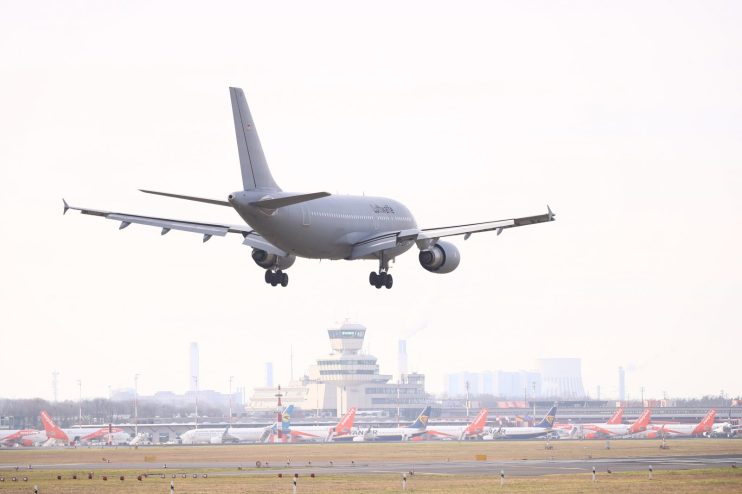Air charge hike is ‘kick in teeth’: Ryanair, British Airways and Easyjet representative slams CAA decision

Airlines have slammed a decision by the industry’s regulator to raise air traffic control charges as a “kick in the teeth” for passengers, who will see air fares rise as a result.
Carriers pay the National Air Traffic Service (NATs), which operates UK airspace, a regulated per passenger charge to fly.
The Civil Aviation Authority said this morning it would allow NATs to bump up charges from by 25 per cent, to an average of £2.08 per passenger per flight between 2023 and 2027.
The decision prompted outrage from UK airlines, who are infuriated at NATs following August’s nationwide air traffic meltdown which grounded thousands of flights.
Tim Alderslade, chief executive of trade body Airlines UK, which represents carriers including Ryanair, British Airways and Easyjet, said “this is yet another kick in the teeth for passengers who have been plagued by issues this summer including the August NATS IT failure.”
Aldersdale argued passengers would “inevitably end up footing the bill of millions of pounds for increases that simply cannot be justified while it remains unclear what action will be taken to ensure airlines and their customers do not see a repeat of this disruption.”
Airlines bosses have described NATs as “unfit for purpose” and called for the resignation of chief Martin Rolfe in the wake of the disaster.
Ryanair’s combattive chief Michael O’Leary has described the groups report into the disaster as a “tissue of lies” and refuted NATs statement that the failure was a “one in a 15 million” glitch in the network.
Aldersdale added: “It is clear that a wider independent review into how NATS is regulated is needed to protect passengers and ensure that airlines are not always forced to act as the insurer of last resort and bear millions of pounds of costs for failures that are not their fault.”
Andrew Walker, chief economist at the UK Civil Aviation Authority, said the decision would give the investment required for NATs to “provide a resilient, high-quality service for passengers and modernise its services, while recovering costs from the pandemic.”
Walker argued that the price control “should ensure” the operator provides an “efficient service and value for money.
He added: “We also recognise the disruption caused by the technical issue in August and we will consider any further regulatory steps as appropriate following the outcome of the Independent Review.”